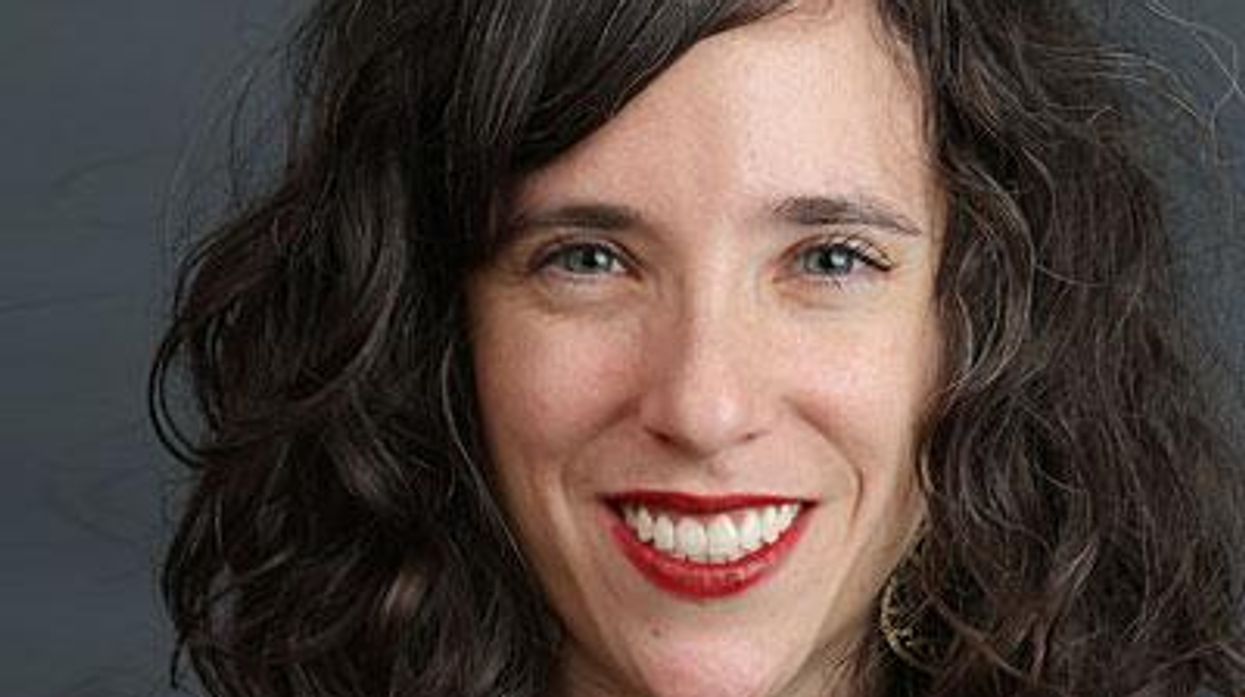
The new leader of the International Gay and Lesbian Human Rights Commission takes our case to the world.
November 02 2012 5:00 AM EST
By continuing to use our site, you agree to our Privacy Policy and Terms of Use.

Even with Ugandan lawmakers proposing a measure to impose the death penalty on gay people, activists on the ground report LGBT groups have increased 10-fold in the past few years. That sort of resilience is exactly the message that Jessica Stern, the new executive director of the International Gay and Lesbian Human Rights Commission, wants to communicate.
"I think LGBT people are tired of being painted as victims, and I don't know if the term survivor encompasses all that we are, but we need to set the bar higher for what we can accomplish and how we move forward in our lives," she says.
Stern, 36, took the helm of the 22-year-old U.S.-based organization in September after serving as acting executive director and director of programs. A former researcher for Amnesty International and Human Rights Watch with a background in Latin America, she has also worked with Queers for Economic Justice and Bluestockings, a women's bookstore in New York. These days work takes the Long Island native uptown or to Geneva for United Nations meetings, or to one of IGLHRC's offices monitoring 17 countries across Africa, Asia, Latin America and the Caribbean, and the Middle East.
IGLHRC is one of just a few LGBT organizations to hold consultative status at the U.N., having won accreditation in 2010 after a hard-fought battle Stern helped lead. The special designation allows nongovernmental organizations to participate in the U.N. process--access that IGLHRC has used to submit reports on the human rights records of more than 20 countries.
"Using these spaces puts LGBT activists front and center before the government that they depend on for safety, and also before the international bodies that really in many ways set world opinion," says Stern.
Recent years have seen landmark advances in LGBT rights at the U.N., including a dramatic vote to restore a provision on sexual orientation to a resolution on extrajudicial executions, the first-ever resolution condemning rights violations based on sexual orientation or gender identity, as well as the Obama administration's historic plan to integrate LGBT rights into U.S. foreign policy. "Gay rights are human rights and human rights are gay rights," said Secretary of State Hillary Clinton when she announced the initiative last year.
Progress fuels opposition, and this year conservative governments, led by Russia, China, Iran, and Syria, are attempting to weaken the human rights treaty bodies, the committees that monitor implementation of the treaties and help advocates hold governments accountable. Stern calls the development "incredibly worrisome." While none of the major U.N. treaties explicitly mentions LGBT rights, the treaty monitoring bodies have repeatedly affirmed such rights.
IGLHRC was founded to encourage mainstream human rights groups to pay attention to LGBT rights, but as that mission has proven successful, the focus has evolved to prioritizing LGBT-specific needs. Organizations in many countries still lack LGBT staff members, and questions often surround how to build local collaborations and how best to respond around issues of discrimination, for example, in communities where no one feels safe to be openly LGBT.
"We don't just want to be tacked on to existing strategies," says Stern. "We need our own strategies."
Charlie Kirk DID say stoning gay people was the 'perfect law' — and these other heinous quotes